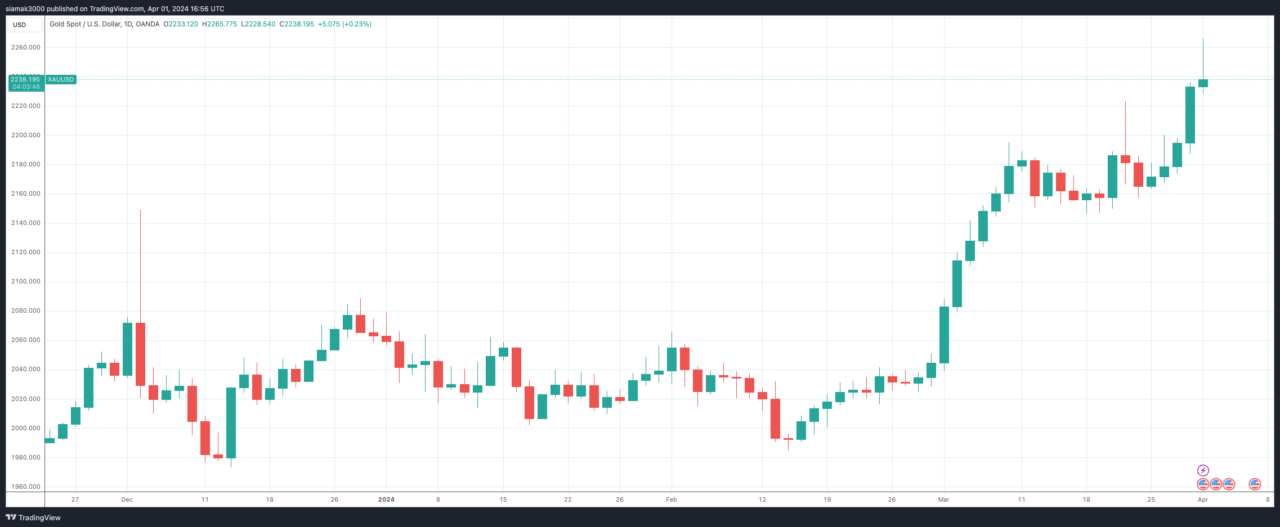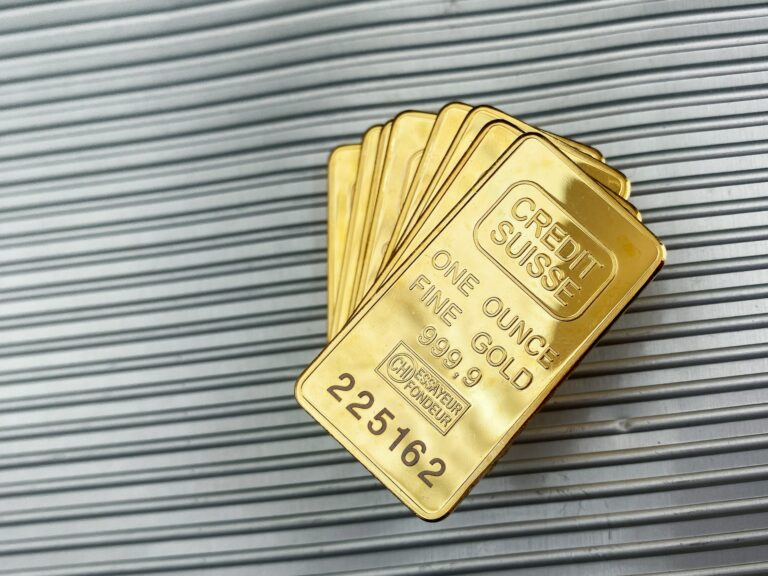Gold prices reached new heights on Monday, driven by a cocktail of investor anticipation for U.S. interest rate cuts and the metal’s enduring appeal as a safe-haven asset. Around 4:00 a.m. UTC on April 1, the spot gold price hit a new all-time high of $2,265.77 an ounce. Currently (as of 5:15 p.m. UTC), spot gold is trading at around $2,238.71 (up 0.25% on the day) per ounce.

According to a report by CNBC, Joseph Cavatoni, a market strategist at the World Gold Council, expressed his excitement about the current market dynamics, highlighting the growing confidence among market speculators. CNBC says expectations of forthcoming Federal Reserve cuts largely fuel this confidence and that with the financial community eyeing June for the anticipated interest rate reduction, gold’s allure seems only to amplify.
CNBC goes on to say that although the personal consumption expenditures price index excluding food and energy increased 2.8% on a 12-month basis in February, the U.S. central bank maintained its stance on interest rates at its March meeting, projecting three rate decreases within the year.
CNBC points out that gold’s pricing dynamics offer a fascinating study in economic relationships, particularly its inverse correlation with interest rates. As interest rates decline, gold becomes a more attractive investment compared to fixed-income assets like bonds, which offer diminishing returns in a lower interest rate scenario. This dynamic is a key driver behind gold’s current market performance.
CNBC mentions that further fueling the rally in gold prices is robust international demand. Caesar Bryan, a portfolio manager at Gabelli Funds, pointed to China’s burgeoning interest in gold. This surge is partly due to the underperformance of the real estate sector and broader economic challenges facing the country. With the Chinese economy showing signs of weakness and the stock market and currency struggling, gold has emerged as a beacon for private investors seeking stability.
According to CNBC, a significant portion of the demand driving gold’s price surge comes from the world’s central banks. These institutions are actively diversifying their reserve portfolios, motivated by a mix of geopolitical risks, domestic inflation concerns, and the U.S. dollar’s fluctuation. According to Cavatoni, this robust buying activity underscores a compelling case for gold, though it remains to be seen whether this trend will maintain its magnitude and duration.
At the heart of both consumer demand and central bank purchases of gold is China, leading the charge in global gold consumption.
Featured Image via Unsplash









